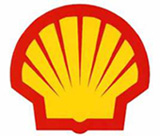影片对白 At any rate, we land, we meet my guy, and even if we don't find the person who tipped off the cops, we find his phone. The paper trail begins.
我观之我见 似乎继父母与继子女的关系都是比较难处的……
考考你 一展身手
2. Tip off
在口语中的意思是“Supply with secret or private information; also, warn or alert”,例如:
The broker often tipped her off about stocks about to go down in price.
They were tipped off and left the country before the police could catch them.
Tip off 还可以表示“透露内部信息,给出内行人的建议”,例如:He tipped off the police about the terrorist plot.
3. Paper trail
这是一个法律术语,意思是“the documentary evidence of one's actions”,可以是手写的,也可以是打印的,包括有书面档案、文档、记录等等,我们来看几个例子,体会一下这个术语的含义:
Judges leave a paper trail, a track record of opinions that tell, literally, where they are coming from.
This paper trail consisted mainly of electronically stored information.
4. Make a scene
这个片语也写作create a scene,意为“make a public disturbance or excited emotional display(当众吵闹或兴奋得大喊大叫等)”,例如:Joan made a scene when the restaurant lost her dinner reservation.
5. You got no clue.
意思是:You have no idea.
文化面面观
美国的石油产业与石油政策
 Oil was an integral part of U.S. foreign policy in the twentieth century, and its influence has shown no sign of diminishing in the twenty-first century. Oil has been and continues to be central to military power and to modern industrial society, and possession of ample domestic oil supplies and control over access to foreign oil reserves is a significant, and often overlooked, element in the power position of the United States relative to its rivals. 美国是世界第一大石油消费国,也是世界上已探明石油探明储量最多的国家之一。美国的石油炼制加工行业主要集中于得克萨斯州、路易斯安纳州、加利福尼亚州、伊利诺伊州、宾西法尼亚州、新泽西州、华盛顿州、俄亥俄州和印第安纳州。目前美国市场上占主导地位的油公司主要是埃克森美孚公司、飞利浦大陆石油公司、雪佛龙德士古公司、壳牌石油公司、Frontier Oil, Marathon Oil等公司。对于国内的石油开采与生产,美国用法律形式明确了石油资源的所有权、勘探权和开采权,然后用市场竞标方式确定开采权的租让价格。政府不直接干预私人企业的石油生产和经营,油品价格由市场供求决定。战略储备石油的采购、储存、释放基本上采取市场招标机制,政府运用金融衍生品工具和期货市场来分散和回避国际石油价格激烈波动的影响,或者降低储备成本。另外,政府还通过补贴、技术援助和融资手段支持国内能源企业参与国际竞争。
Oil was an integral part of U.S. foreign policy in the twentieth century, and its influence has shown no sign of diminishing in the twenty-first century. Oil has been and continues to be central to military power and to modern industrial society, and possession of ample domestic oil supplies and control over access to foreign oil reserves is a significant, and often overlooked, element in the power position of the United States relative to its rivals. 美国是世界第一大石油消费国,也是世界上已探明石油探明储量最多的国家之一。美国的石油炼制加工行业主要集中于得克萨斯州、路易斯安纳州、加利福尼亚州、伊利诺伊州、宾西法尼亚州、新泽西州、华盛顿州、俄亥俄州和印第安纳州。目前美国市场上占主导地位的油公司主要是埃克森美孚公司、飞利浦大陆石油公司、雪佛龙德士古公司、壳牌石油公司、Frontier Oil, Marathon Oil等公司。对于国内的石油开采与生产,美国用法律形式明确了石油资源的所有权、勘探权和开采权,然后用市场竞标方式确定开采权的租让价格。政府不直接干预私人企业的石油生产和经营,油品价格由市场供求决定。战略储备石油的采购、储存、释放基本上采取市场招标机制,政府运用金融衍生品工具和期货市场来分散和回避国际石油价格激烈波动的影响,或者降低储备成本。另外,政府还通过补贴、技术援助和融资手段支持国内能源企业参与国际竞争。
 Control of oil has been intimately linked to broader political, military, and economic objectives. These larger foreign policy concerns have shaped the issue of control and have, in turn, been shaped by it. For example, all the major postwar doctrines of U.S. foreign policy-the Truman, Eisenhower, Nixon, Carter, and Reagan doctrines-relate, either directly or indirectly, to the Middle East and its oil.
Control of oil has been intimately linked to broader political, military, and economic objectives. These larger foreign policy concerns have shaped the issue of control and have, in turn, been shaped by it. For example, all the major postwar doctrines of U.S. foreign policy-the Truman, Eisenhower, Nixon, Carter, and Reagan doctrines-relate, either directly or indirectly, to the Middle East and its oil.
The oil industry has been one of the most modern and best-organized sectors of the U.S. economy, and both domestic and international companies have opposed policies that reduce the demand for their products. Domestic producers have argued that greater incentives for domestic production are the answer to U.S. oil needs, while companies with interests overseas have argued that they can supply U.S. oil needs, provided they receive government protection and support.